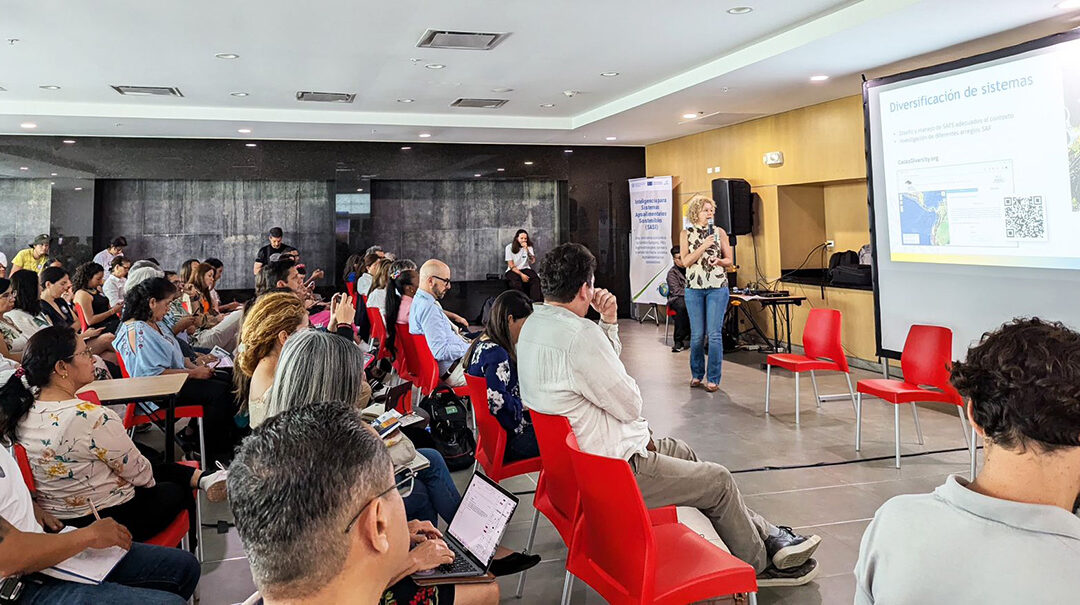The Clima-LoCa project actively participated in COP16, the global biodiversity summit held in Cali, Colombia, from October 21 to November 1, 2024. On this occasion, the event was known as the “COP of the people and reconciliation,” seeking to integrate the vision of “Peace with Nature” and highlight the importance of biodiversity in sustainable development.
Clima-LoCa at COP16 Colombia
The project participated in two key events within the Green Zone, a space designed to promote social mobilization and collective commitment to environmental protection.
Monday, October 21
Together with the company Biodiversal, the project was presented at the event entitled “Innovation in Coffee Farming and Agroforestry.” The event showcased the Biochar project in coffee farming systems and agroforestry in cocoa farming systems, and how they contribute to the conservation and restoration of degraded ecosystems and soils. Examples and available tools were presented, including cacaodiversity.org, to inform decisions on the implementation of regenerative practices and the design of multifunctional agroforestry systems. Alliance Bioversity & CIAT and Clima-LoCa provide training in the design of regenerative agroforestry systems using the cacaodiversity.org tool, which promotes regenerative agriculture and supports small coffee-growing families in the face of climate change.
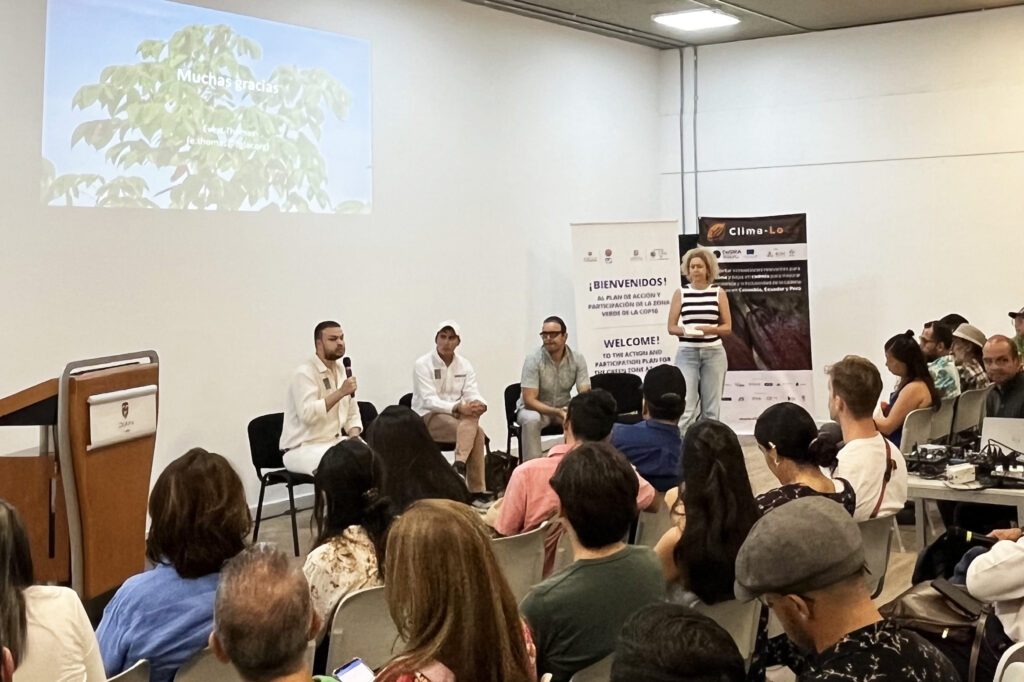
Friday, October 25
At the invitation of the European Union Delegation in Colombia, Clima-LoCa participated in the Biodiversity and Climate Change thematic block “Agroecology and sustainable agricultural systems.” The presentation covered the project’s objectives and the tools that have been developed to help improve resilience and inclusivity in the cocoa chain in Colombia, Ecuador, and Peru. Emphasis was placed on promoting agroecological practices that improve soil health. Clima-LoCa focuses on three actions: the efficient use of fertilizers based on soil analysis, the application and evaluation of organic fertilizers, and training and evaluation of soil health. Special emphasis was placed on strategies to increase the resilience of communities to climate change and possible solutions to cadmium concentrations in cocoa crops in the region.
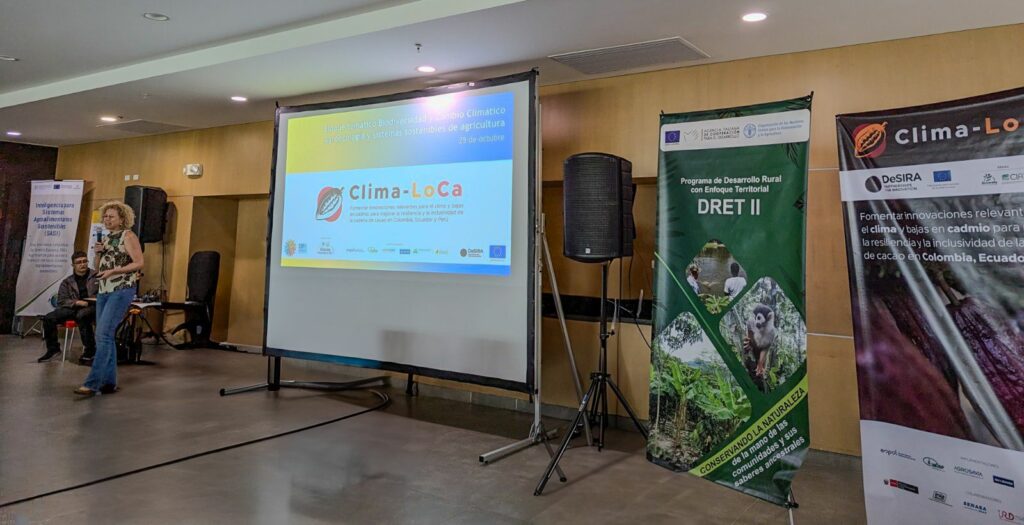
Clima-LoCa also had a space in the Blue Zone alongside other DeSIRA projects in the area entitled “Lessons learned from the DeSIRA project on new avenues of research to support biodiversity through agroecological innovations in agriculture and food systems.” It also participated in activities organized by Alliance Bioversity and CIAT at their facilities on the Palmira campus. Clima Loca’s participation seeks to raise awareness about climate challenges and encourage concrete actions that benefit both local communities and the global environment. Direct interaction with attendees allows for the establishment of networks and alliances that are essential for addressing the challenges of climate change. In this sense, COP16 is the ideal setting for these purposes, as it is designed to be a space where the voices of all stakeholders, from governments to civil society organizations, can be heard.
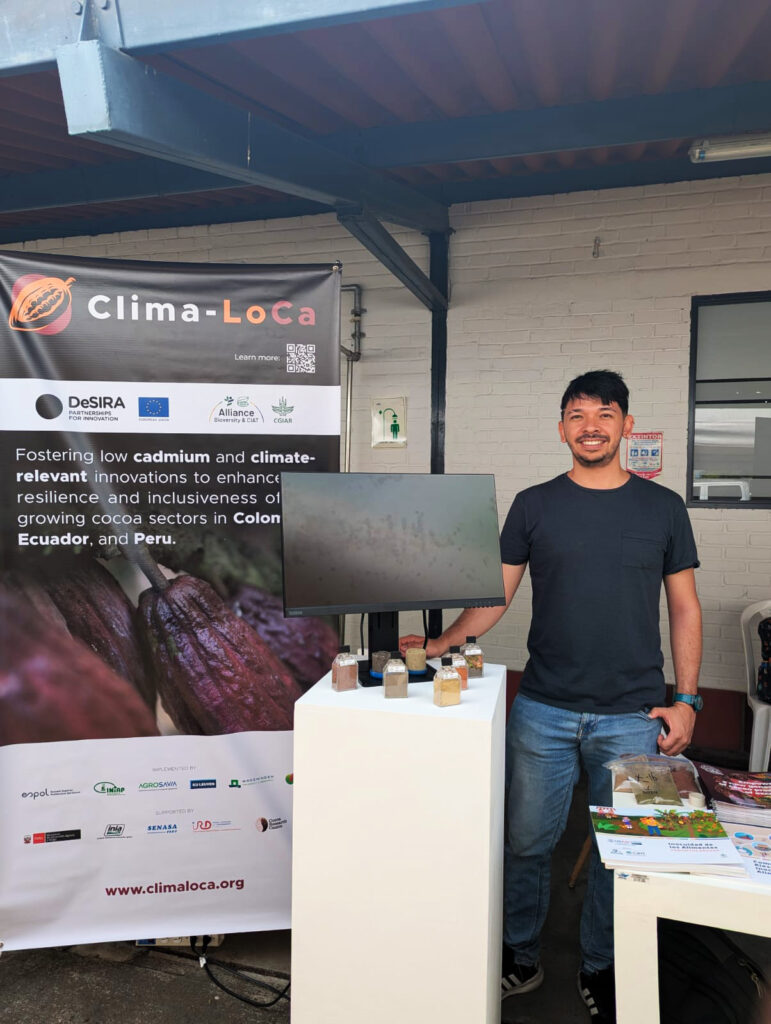
About the COP As is well known, the Conference of the Parties (COP) is composed of all States (or “Parties”) and is the supreme body of the Convention on Biological Diversity (CBD), an international treaty that seeks to conserve biological diversity, use it sustainably, and share equitably the benefits derived from the use of genetic resources. At the previous COP15 on Biodiversity in Kunming-Montreal in 2022, a global framework for the protection of biological wealth was established with 23 specific targets to be achieved by 2030. Within this framework, the Clima-LoCa project contributes to the achievement of three of these targets:

1) Goal 8: Minimize the impact of climate change on biodiversity and increase its resilience. Cocoa farming systems can protect and connect a wide range of biodiversity. Clima-LoCa proposes the implementation of climate-smart practices to support decision-making in these systems, contributing to the conservation of the crop and the species it protects. aCLIMAtar, a tool supported by the Clima-LoCa project, helps to facilitate climate projections for practical advice in the field.
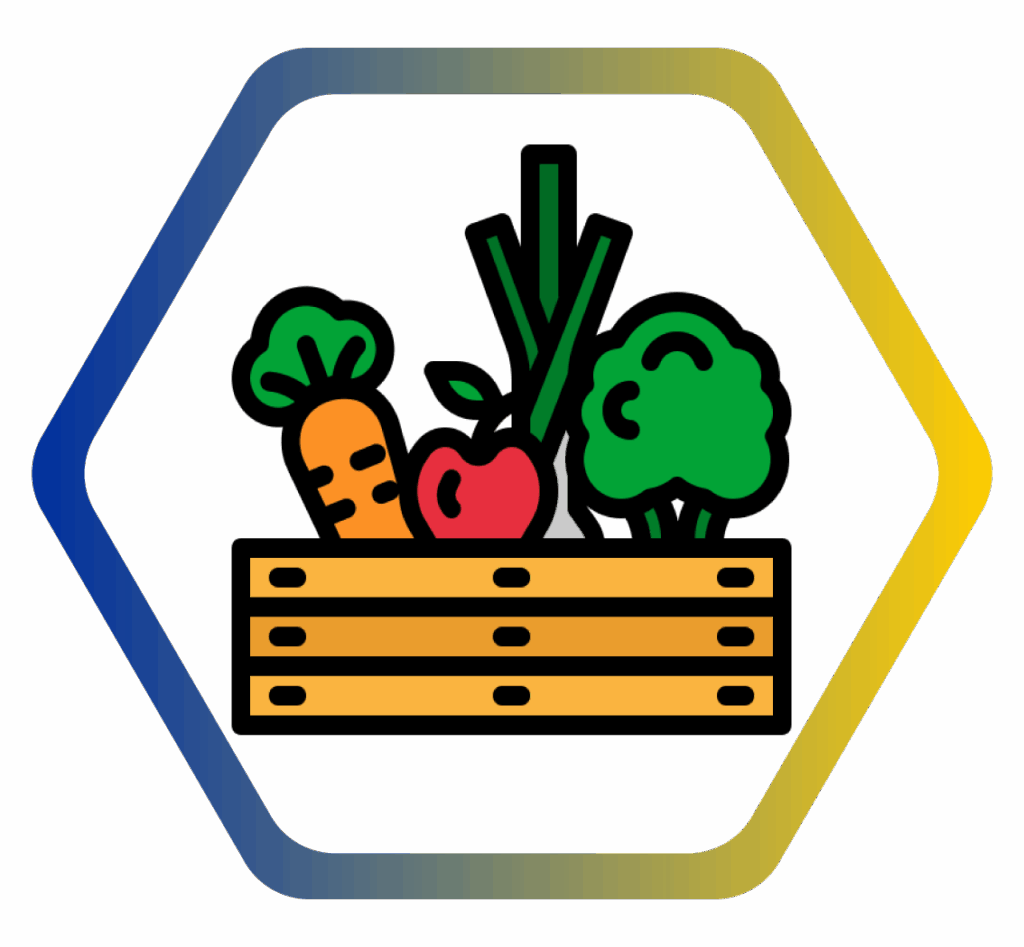
2) Goal 10: Improve biodiversity and sustainability in agriculture, aquaculture, fisheries, and forestry: Clima-LoCa promotes innovations such as agroforestry systems that encourage species diversity in cocoa farming systems. To this end, Clima-LoCa collaborates with the Cacao Diversity tool, which has been developed to provide specific information on how to improve sustainability in cacao crops in Latin America.

3) Goal 11: Restore, maintain, and enhance nature’s contributions to people: In addition to promoting diversification of the cocoa system, Clima-LoCa evaluates the effect of cadmium and climate change mitigation practices on soil health, understanding the importance of soil as a means of sustaining life. Chocosafe, a tool supported by this project, allows the safe cadmium limit in raw materials (nibs) to be calculated depending on the final consumer product, in accordance with European Union regulations.

